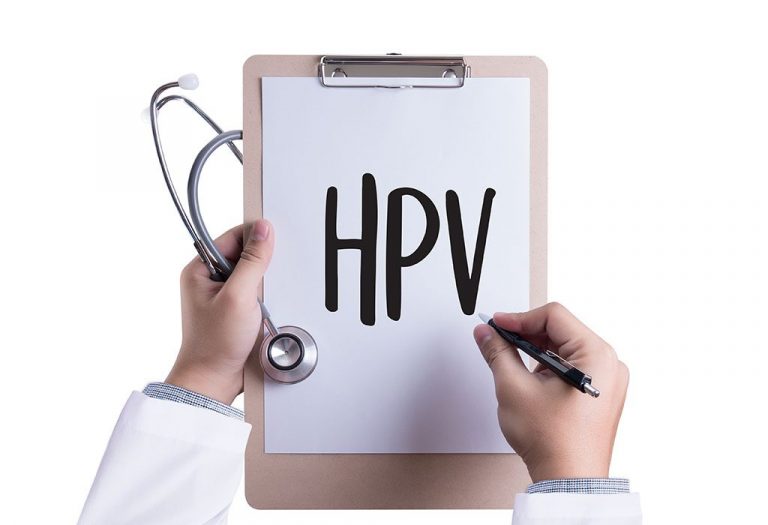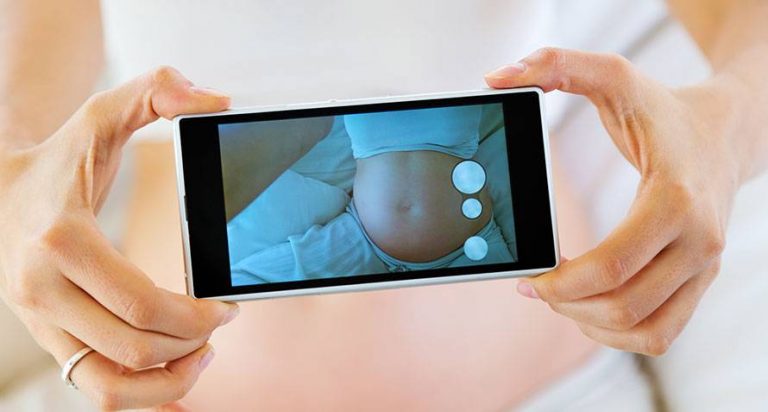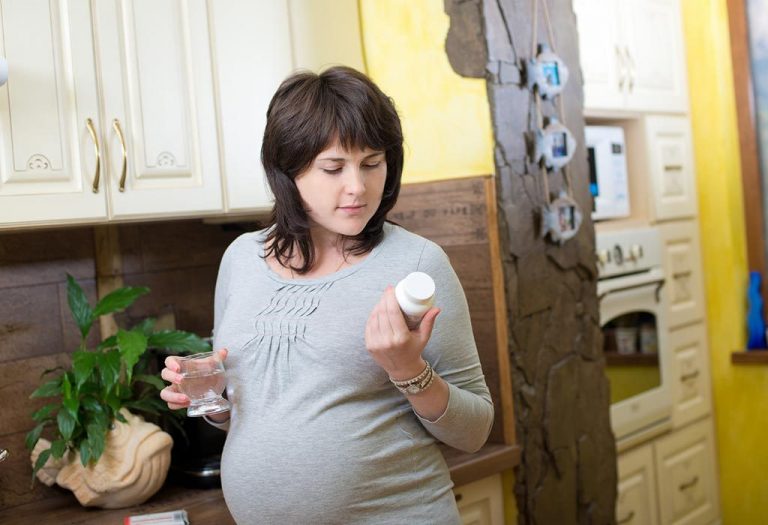Human Papillomavirus Infection (HPV) During Pregnancy – Signs, Risks & Treatment
HPV, or Human Papillomavirus, is a common sexually transmitted infection that may affect you during pregnancy. Many such infections can adversely impact your ability to conceive or your pregnancy, leading to potential complications. It is essential to understand the risks and management strategies associated with HPV while pregnant. HPV and pregnancy can coexist, but proper medical care and monitoring are crucial to ensure the health of both the mother and the baby. Knowing more about HPV during pregnancy can help you effectively manage this medical condition and reduce the chances of complications that may arise due to this infection. By staying informed and proactive, you can navigate the challenges of HPV and pregnancy with greater confidence and care.
What Is HPV?
Human papillomavirus, or HPV, is a sexually transmitted infection. There are approximately 150 kinds of HPV and out of these around 40 viruses may cause genital warts or may cause various kinds of cancer (vagina, cervix, anus, vulva or penis) (1).
How Common Is It?
HPV is a very common kind of sexual infection, and in America alone, 20 million people are affected by it. Around 75 percent of sexually active people may experience HPV once in their lifetime (2). However, many times, people remain unaware of their condition.
How Is It Transmitted?
HPV may be transmitted in the following ways (3):
- Vaginal sex, anal sex and in some cases oral sex.
- In same-sex partners, through genital contact.
- No evident symptoms and thus remains undetected in many cases.
- A single person may catch one or more type of HPV infection.
Can HPV Affect Your Chances of Getting Pregnant?
Most cases of HPV go undetected because there are no evident symptoms. Therefore, in case you have HPV without any symptoms, there are no major complications that may arise in getting pregnant.
Trying to Get Pregnant With No History of HPV
Women who are trying to conceive might wonder if they need a specific HPV test to confirm they are not infected with the virus. However, this is generally unnecessary. If a woman has been undergoing regular Pap smears, any irregularities detected during those tests would have prompted her doctor to investigate further for HPV. During pregnancy, a Pap test is typically conducted at the first prenatal appointment for those who are not current with their screenings. If the results show any abnormalities, the doctor may recommend additional testing.
These follow-up tests might include an HPV screening, as the virus is linked to cervical cancer. The doctor may also opt to perform a colposcopy, a procedure that uses a lighted instrument to closely examine the cervix for any abnormal tissue changes. This ensures any potential issues are identified and addressed promptly.
Trying to Get Pregnant with a History of HPV
If you are trying to get pregnant with a history of HPV, there is no major difficulty that you may face. However, the increased levels of estrogens may aggregate the condition of genital warts and may also lead to bleeding and infection. It is recommended that if you have a history of HPV, you should talk to your doctor about the same and discuss various complications that may arise.
Pregnant With HPV
If you are pregnant with HPV, the following may happen:
- Your doctor may postpone the treatment because of the risk of preterm labor.
- Your genital warts may become bigger, multiply or even bleed.
- In case of bigger warts, your doctor may remove them before childbirth to clear the obstruction.
Signs and Symptoms of HPV While Pregnant
The signs and symptoms of the HPV virus while pregnant may often go unnoticed. However, genital warts are the most common symptom. These warts may appear like (4):
- Tiny projections
- Tiny bumps with an irregular appearance
- Flat lesions
- In women, warts may appear on the cervix, vulva, vagina and near the anus.
- In men, warts may appear on the scrotum, penis and around the anus.
Risk Factors of HPV in Pregnancy
Human papillomavirus (HPV) is a common sexually transmitted infection that can pose specific risks during pregnancy. While many women with HPV have healthy pregnancies, certain factors may increase the likelihood of complications. Understanding these HPV risks during pregnancy can help expectant mothers and healthcare providers take necessary precautions to ensure a safe pregnancy.
- Weakened Immune System: Pregnancy naturally suppresses the immune system, which can make it harder for the body to control HPV, potentially leading to a faster progression of abnormalities.
- Multiple Sexual Partners: A higher number of sexual partners can increase the likelihood of exposure to HPV, raising the risk of infection during pregnancy.
- Sexual Activity During Pregnancy: Engaging in unprotected sexual activity during pregnancy can increase the risk of acquiring or transmitting HPV, potentially leading to complications.
- Age: Research suggests that women under the age of 25 may face a greater likelihood of acquiring an HPV infection during pregnancy (5). However, further studies are required to fully understand the connection between age and the increased risk of contracting the virus.
- Past HPV Infections: A history of previous HPV infections, especially if they were not fully cleared, can increase the risk of reactivation or persistence of the virus during pregnancy.
Diagnosis of HPV When Pregnant
The following are tests used to diagnose HPV in pregnancy (6):
1. DNA Test
Your doctor will collect some cells from your cervix. These cells will be tested to detect the presence of any kind of cancer.
2. Pap Test
In this test, your doctor will take some cells from your cervical region and study them under a microscope. High-risk HPV that may cause cervical cancer may be diagnosed in this test.
3. Colposcopy
In this test, your doctor will make use of a colposcopy to see your cervix clearly. A solution is applied to the cervical lining that will change the color of HPV-infected cells.
4. Pelvic Examination
Your OB/GYN will conduct a pelvic cervical exam to check for the presence of external warts. This allows the doctor to visually assess any visible signs of HPV-related growth.
Can HPV Affect Pregnancy and an Unborn Baby?
It is very rare that HPV affects your pregnancy or your unborn baby’s health. Though genital warts may increase or grow at a faster pace in pregnancy due to more vaginal discharge, changes in hormones or compromised immune system.
In very unlikely situations, you may pass HPV infection to your baby. In case your baby catches HPV, your baby will overcome the condition on its own. However, in case your baby catches HPV that results in genital warts, your baby may develop warts around the throat or other parts of the body. This rare condition is called recurrent papillomatosis and may lead to serious complications.
Treatment for HPV During & After Pregnancy
Some people are immune to HPV infection, and thus this virus gets eliminated from their bodies. On the other hand, people who catch this infection may have to undergo surgery, freezing, laser removal, chemical removal or burning of genital warts. However, HPV during pregnancy can be treated in fthe ollowing ways:
1. During Pregnancy
In most cases, the doctor will postpone the treatment of HPV; however, you may be closely monitored for the following:
- Cervix will be monitored closely to check for any change in tissues.
- Your warts will be checked on a regular basis to see if they are growing or bleeding.
- Removal of warts may be considered, in case they may cause obstruct during the birthing process.
- If you are suffering from cervical cancer, extra caution will be taken during labour and childbirth.
2. After Delivery
The treatment option after delivery may include conducting a second pap test. This test may be conducted for the following reasons:
- To estimate the extent of infection and assess various treatment options that may be required.
- In many cases, warts may go away after the birth of your baby. This happens in cases where the warts are not high-risk warts.
- The doctor will make further treatment options after analyzing the seriousness of your condition.
Prevention of HPV Infection During Pregnancy
There is no permanent cure available for HPV; therefore, it is important that you follow the preventive measures (7).
- You may take the vaccine (Gardasil vaccine) to prevent HPV. Though the vaccine may not provide you protection against all HPV viruses.
- Necessary precautions during sexual intercourse will be helpful (Using a condom)
- Do not have multiple sexual partners, as it may increase your chances of catching HPV.
- You may talk to the doctor about concerns about HPV and know about this infection.
FAQs
1. Can HPV cause changes in vaginal discharge during pregnancy?
While HPV itself doesn’t typically cause noticeable changes in vaginal discharge, cervical abnormalities or inflammation caused by the virus might lead to unusual discharge. If you notice any changes, it’s important to discuss them with your healthcare provider to rule out other infections or complications.
2. Does HPV impact the effectiveness of prenatal vitamins or supplements?
There is no evidence that HPV interferes with the absorption or effectiveness of prenatal vitamins or supplements. However, maintaining a strong immune system through proper nutrition can help your body manage the virus more effectively during pregnancy.
This was all about human papillomavirus and pregnancy. Many women may wonder that can HPV prevent pregnancy, and the answer is no, HPV does not prevent pregnancy but may lead to complications during pregnancy and childbirth. The HPV effects on pregnancy can be discussed with your doctor for detailed knowledge on the subject.
References/Resources:
1. National Library of Medicine – Human Papillomavirus
2. National Library of Medicine – An update on oral human papillomavirus infection
3. CDC – About Genital HPV Infection
4. Mayo Clinic – HPV infection
6. National Library of Medicine – HPV and pregnancy: diagnostic methods, transmission and evolution
7. University of Michigan Health – Genital Warts (Human Papillomavirus)
Also Read:
Infections That Can Affect Pregnancy
CMV (Cytomegalovirus) in Pregnancy
Chickenpox in Pregnancy
Torch Infection when Pregnant
Chikungunya Virus Infection during Pregnancy
Was This Article Helpful?
Parenting is a huge responsibility, for you as a caregiver, but also for us as a parenting content platform. We understand that and take our responsibility of creating credible content seriously. FirstCry Parenting articles are written and published only after extensive research using factually sound references to deliver quality content that is accurate, validated by experts, and completely reliable. To understand how we go about creating content that is credible, read our editorial policy here.




































